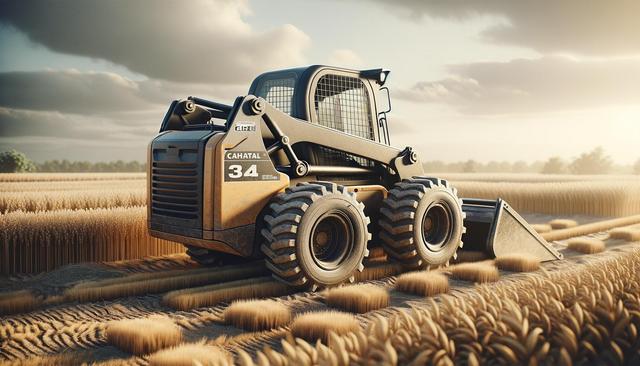Understanding the Value of Used Skid Steer Loaders
Skid steer loaders are versatile machines commonly used in construction, agriculture, landscaping, and material handling. While new equipment can be costly, used skid steer loaders offer a more accessible option for businesses working within a budget. Their compact design, maneuverability, and attachment compatibility make them a popular choice across various industries. Buying used can significantly lower your initial investment while still providing solid performance, especially if the equipment has been well-maintained.
One of the key advantages of purchasing used machinery is cost-efficiency. Depreciation hits hardest in the first few years, so buying used allows you to avoid the steepest decline in value. In many cases, used skid steer loaders can still offer years of dependable service, particularly when sourced from reputable sellers who provide maintenance records and inspection reports. This makes them appealing for startups or companies looking to expand their fleet without incurring high capital expenses.
What to Look for When Shopping for Used Skid Steers
When evaluating used skid steer loaders, it’s important to inspect several critical components to ensure the machine is in good working order. A thorough evaluation can prevent unexpected repair costs down the road. Here are a few areas to focus on during inspection:
- Engine and hydraulic system performance
- Tire or track condition and wear
- Hours of operation and service history
- Signs of leaks or rust
- Functionality of controls and attachments
Additionally, consider the machine’s compatibility with attachments you may already own or plan to purchase. Not all skid steers are built the same, so matching hydraulic capacity and mounting systems can be essential for maximizing operational efficiency.
Where to Find Reliable Used Skid Steer Loaders for Sale
There are several avenues to explore when looking for used skid steer loaders. Each comes with its own set of pros and cons. Local equipment dealers often have used inventory and may offer warranties, financing, or service support. Online marketplaces have a broader selection and allow you to compare prices across regions. Auctions, both physical and online, can also yield competitive deals but may require more due diligence regarding equipment condition.
When purchasing used equipment, working with a trusted seller is key. Look for sellers that offer:
- Detailed equipment descriptions and photos
- Maintenance and usage history
- Return policies or warranties
- Customer reviews or references
Some sellers specialize in refurbishing used construction equipment, which can add value by ensuring the machine has been thoroughly inspected and restored to working condition.
Benefits of Buying Used for Small Businesses and Contractors
For small business owners and independent contractors, buying used skid steer loaders can be a strategic move. It allows access to essential equipment without overextending financially. Used equipment tends to have lower insurance costs and often comes with fewer registration fees or taxes. This can contribute to better cash flow and more flexibility in allocating resources to other areas of your business.
Other benefits include:
- Faster return on investment due to lower purchase price
- Immediate availability, especially when buying locally
- Ability to scale operations gradually
- Reduced depreciation compared to new machinery
With proper maintenance, many used skid steer loaders continue to perform reliably for years. This makes them a practical choice when balancing performance with budget constraints.
Tips for Maintaining Your Used Skid Steer Loader
Once you’ve purchased a used skid steer loader, regular maintenance is crucial to ensure longevity and reliable performance. Even well-maintained equipment can develop issues over time if not properly cared for. Establishing a maintenance routine can help prevent costly repairs and downtime.
Key maintenance tips include:
- Conducting daily checks on fluid levels and tire or track condition
- Following manufacturer-recommended service intervals
- Keeping attachments clean and properly stored
- Inspecting and replacing filters regularly
- Monitoring for signs of wear or unusual noises
Investing in basic training for operators can also extend the life of your machine. Proper usage reduces unnecessary strain on components and ensures safe, efficient operation. Keeping records of all maintenance activities further helps in tracking the health of your equipment and can support resale value if you decide to upgrade in the future.







